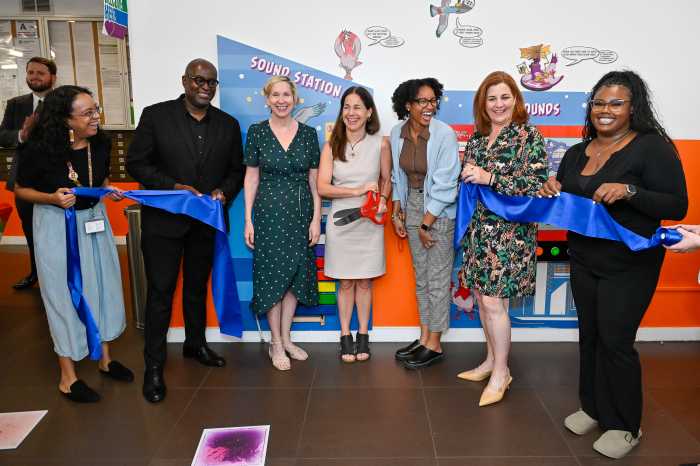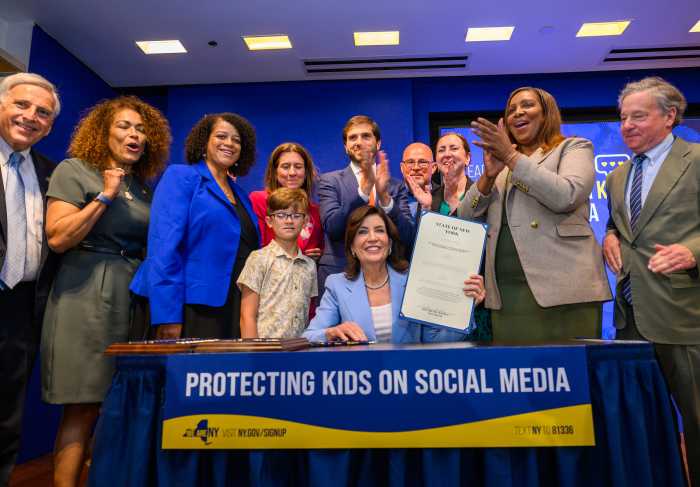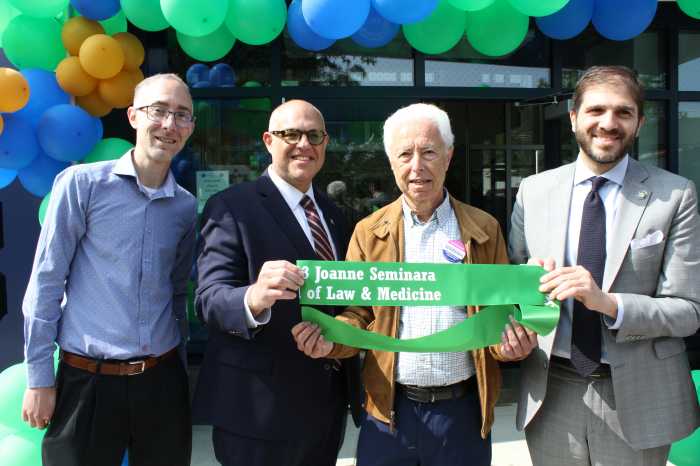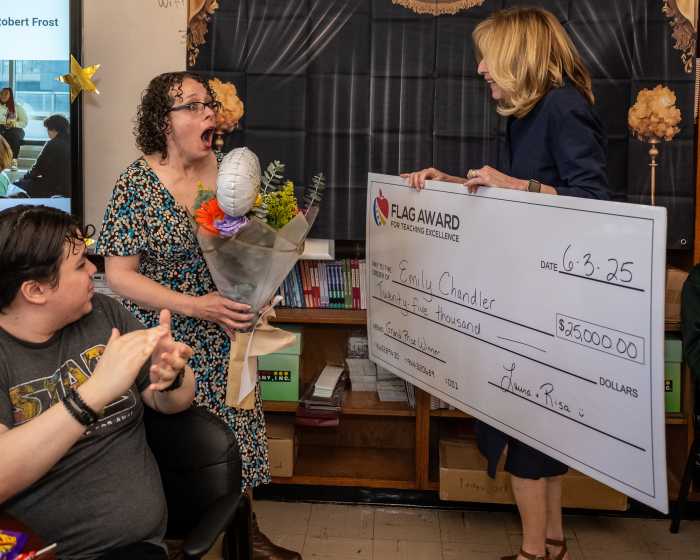The other day, I asked one of my kids’ friends if he’d like to have a sleepover.
“Do you really think I’d say, ‘No’ to that?” the boy said excitedly.
I was excited, too; it felt really good to know that my children are liked. So the other day over breakfast, I traded my usual style of parenting — nit-picking, constructive criticism, disciplining — to share the good news:
“Matthew really likes you guys,” I said.
Oscar snorted.
“Everyone likes us,” he said, more than a little aggrieved with the idea that what I’d said needed to be said at all. “Nobody doesn’t like us…”
I looked over at Eli, legs pulled up to his chest. He didn’t look up from his book. He just shrugged in agreement.
I smiled. This was a big moment in parenting and I had to stop to appreciate it: MY CHILDREN FELT UNIVERSALLY LIKED!
It didn’t matter if it was true or not, if every kid on the playground snickered and gossiped behind their backs. They didn’t notice or care. They were just fine.
They’d be just fine.
What seems to matter most in this life is what we think people think. Reality is like a distant cousin to that imagination, to the thoughts that give rise to our own actions, which are mostly just reactions to other people’s actions.
If my kids go into the world thinking that everyone likes them, it will save them hours, days, months even years of wasted time worrying about what people might think about them and how they might act differently as a result.
It is really Playground Politics 101, but I’m afraid we as parents so often failed to pass that class. I spent too many years chewing on my fingers fretting about what people thought of me. It still rears its head, of course, that panic, but something snapped in me a while back as I watched my kids and realized with great clarity: it doesn’t matter what other people think.
Kids have to learn to be themselves to be their best selves. Other people’s potentially negative thoughts are like cobwebs that need to be cleared out before we can get on to the business at hand.
If we as parents fail to master this concept, if we fret and worry about who likes our kids and who doesn’t, we will pass along that complex unwittingly, like bad genetic material. They will be stymied at every pass, at every playground and in every classroom, wondering, worrying, getting angry instead of just playing and learning and collaborating.
It goes both ways, of course. Those who worry about who likes them and who doesn’t are usually the ones trying hard to figure who they like and don’t. At breakfast, I decided to throw this idea out there to the boys as I stood over them, ever the annoying guide and teacher when they wish I would just shut up.
“If everyone likes you, it’s because you like everyone…” I said.
I say this often, because I think it’s true and also because it helps to ferret out covertly the names of anyone they might have issues with. If and when a name should arise of someone who they sheepishly say they “sort-of” don’t like, I grill them as to why and then immediately defend the child, knowing, of course, that it all stems back to how well-liked that child feels themselves, at home or in the world.
“Well, I know he has a really hard time…” I might say, or, “She’s just a toughie, like Mommy. I like her.” About bullies, I tell them, “Bullies only bully because they’re getting bullied, by someone else.” It is something a group of child psychiatrists I interviewed once on the subject all agreed upon easily. “It doesn’t make it OK to bully,” I say, “but it’s important to understand why they’re doing it, and to know it has nothing to do with you.”
It’s quite crucial that my kids don’t vilify others and that they don’t feel vilified. The imagination is a wonderful and terrible thing both, and we can create all kinds of mysterious enemies out of near-strangers for the silliest reasons.
In a neighborhood like Park Slope, seeing kids and parents walk off together for playdates, hearing about parties one hasn’t been invited to, it would be so easy to sit and stew.
But what I try to remember is that all I can do is do my best to be nice, all I can do is smile and wave and invite people over for parties, to try to enjoy the great bounty of good people all around, people who like me, who I like. All I can do is model that behavior no matter what so that my kids might do the same.
Mother Teresa may have said it best:
People are often unreasonable and self-centered. Forgive them anyway. If you are kind, people may accuse you of ulterior motives. Be kind anyway. If you are honest, people may cheat you. Be honest anyway. If you find happiness, people may be jealous. Be happy anyway. The good you do today may be forgotten tomorrow. Do good anyway. Give the world the best you have and it may never be enough. Give your best anyway.
























